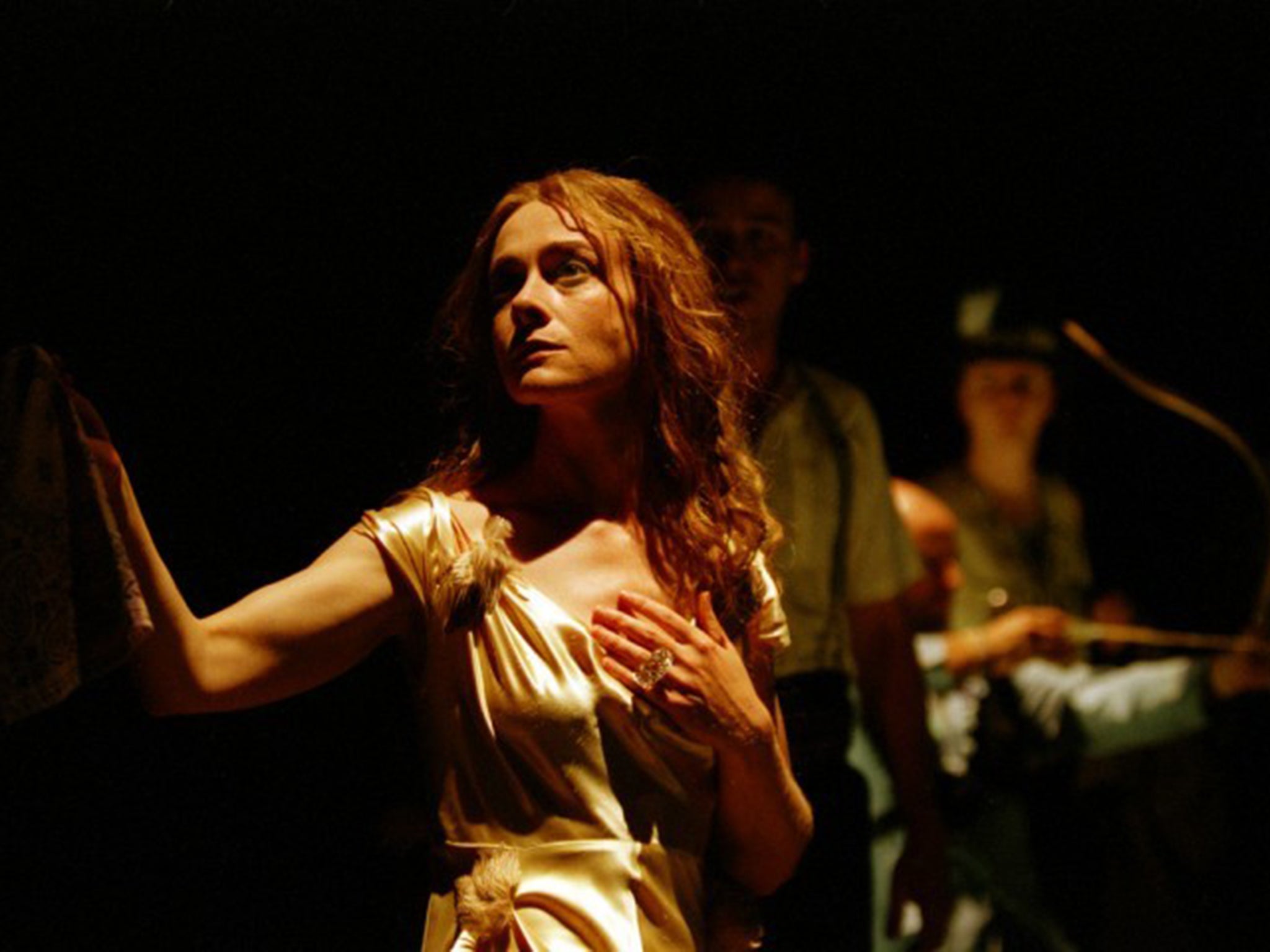Cymbeline: William Shakespeare's mischievous cocktail of subversive energy
Its crazy conclusion widens the eyes, reminds us to trust, then grants its pardons to every lad and girl in the room

Your support helps us to tell the story
From reproductive rights to climate change to Big Tech, The Independent is on the ground when the story is developing. Whether it's investigating the financials of Elon Musk's pro-Trump PAC or producing our latest documentary, 'The A Word', which shines a light on the American women fighting for reproductive rights, we know how important it is to parse out the facts from the messaging.
At such a critical moment in US history, we need reporters on the ground. Your donation allows us to keep sending journalists to speak to both sides of the story.
The Independent is trusted by Americans across the entire political spectrum. And unlike many other quality news outlets, we choose not to lock Americans out of our reporting and analysis with paywalls. We believe quality journalism should be available to everyone, paid for by those who can afford it.
Your support makes all the difference.Cymbeline: how can such a late play be such a mutinous and energetic young man’s game too? It’s as if the later Shakespeare is liquidising a cocktail of Twelfth Night, Othello, King Lear, The Winter’s Tale, The Tempest and Romeo and Juliet, throwing in some chunks and shreds of the history plays, and mashed it all into this consciously mischievous, wildly messy flourish of a narrative, one that winks not just at those foregone plays themselves but at the audience’s expectations of the shapes they’ve taken.
Ask me to paraphrase the plot and we’ll be here for a lifetime; let’s just say Ovid meets Holinshed in a royals vs commoners, poor vs rich, Britons vs Romans folk-tale involving stolen sons, wicked queenery, pauper princes, lying villains, false accusations, up-ended hierarchies and challenged kingdoms, and featuring a cross-dressing heroine, a dose of poison, a bunch of ghosts and even the grand appearance of a god who drops his own written message into the story in the form of a book.
Meanwhile, the arguments between the ancient empires swerve along a plot-line so breakneck that it must surely be one of the hardest to stage and is certainly Shakespeare’s most consciously self-debunking. In fact, the plot is so ritually anti-suspenseful, giving away its secrets so brazenly, that this baring of structural devices becomes much more its raison d’être than the baring of the souls of its characters.
So pantomime-like are the asides and scene-shifts that it becomes a play more about the knowing status of its own audience than about that of the protagonists, all feeling their ways through a plot whose only real consistency is their shared blindness about their own misapprehensions. “Our very eyes/Are sometimes like our judgements, blind,” as the heroine, Imogen, puts it – who, by the halfway mark, has already been deeply in love, robbed while asleep, falsely slurred and heartbroken, and has run away, disguised herself as a boy and met (unknowingly) two brothers she doesn’t know she has; more, she’s also swallowed poison (that we know isn’t really poison) and been resurrected from being dead (although we knew all along she wasn’t really dead).
Still with me? While the characters run around like headless chickens – one of them does end up literally headless – trying to “winnow the truth from falsehood”, Shakespeare frees up the audience, via the play’s yoking of opposites (subtle crudeness? Crude subtlety?), dismisses all “dissembling” courtesies, delineates the false power play in social hierarchies and, by means of a fused imagery of prisons, poisons, birds and a spill of wildflowers, scatters the stage with powerful notions about the clay we’re made of and how we rise above it, clod or spirit. Finally, he graces the mess and wreckage with his own version of “Revelations”, a brilliant cornucopic crescendo, unbelievably comforting, that tells us everything we already knew all along.
Merrily solemn, Cymbeline is a study of how humans might be so much better off if we were “less without and more within”. Its web of instantaneous colliding worlds, its “emperor’s new clothes” vision of what’s worth what, salute the surface-driven intoxications of our own time with a lovely relevance. We’re all “a piece of tender air”, like this play, nothing but wordplay, just a game, an offering, a benign jest, but one that has at its core Shakespeare’s most beautiful song, which conjures better than anything else yet written the release of the spirit from the world’s mess of story, truth and lies: “Fear no more the heat o’the sun/Nor the furious winter’s rages/Thou thy worldly task hast done/Home art gone, and ta’en thy wages/Golden lads and girls all must/As chimney-sweepers, come to dust.”
It’s an impossibility, a “quiet consummation” at the heart of a roaring circus. Its crazy, amazing conclusion widens the eyes, reminds us to trust, then grants its pardons to every lad and girl in the room – including us. What an unexpected beauty it is.
Join our commenting forum
Join thought-provoking conversations, follow other Independent readers and see their replies
Comments